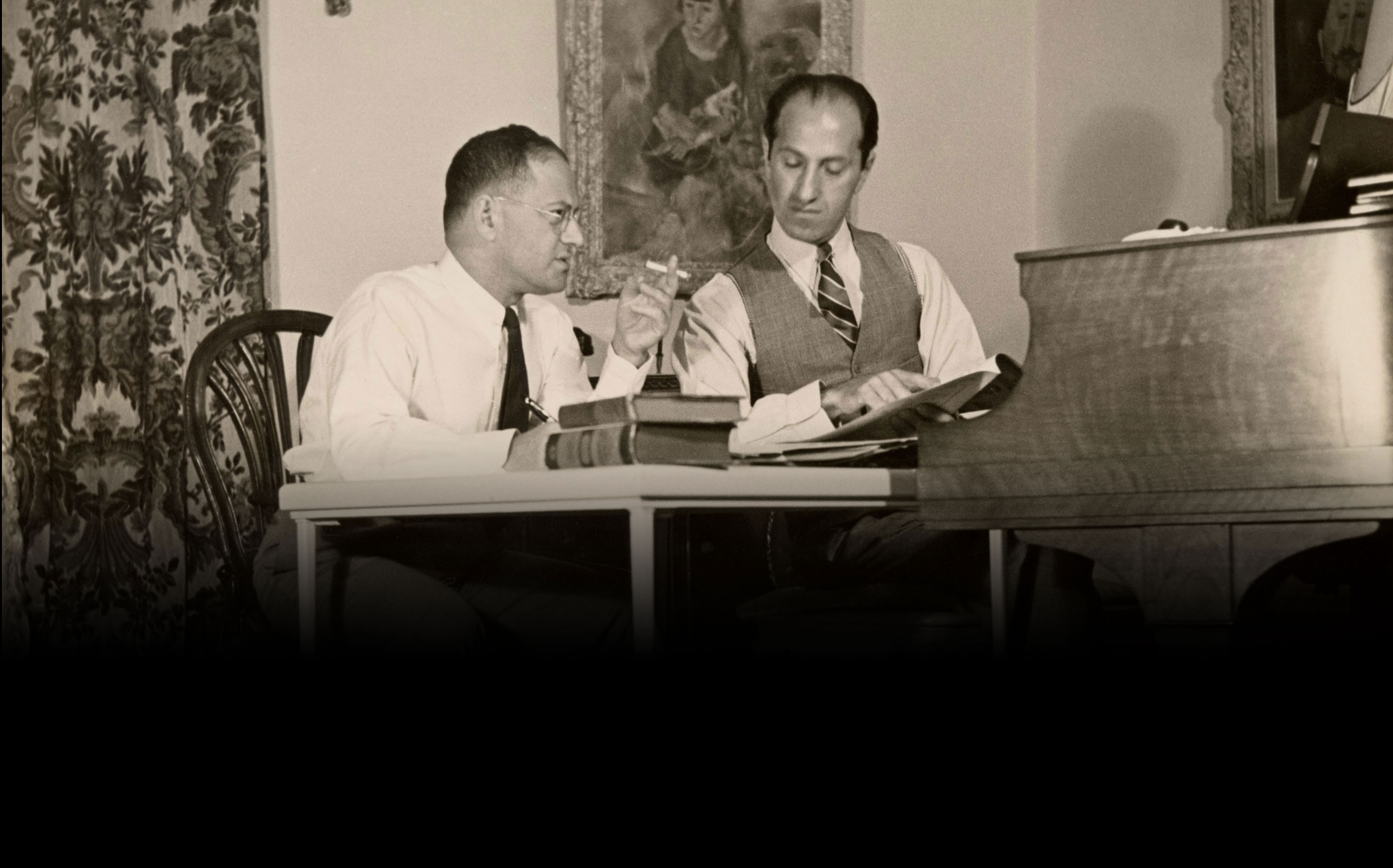An American in Paris: An Interview with Broadway Chorus Member Will Burton

Will Burton graduated from the University of Michigan’s Musical Theatre program in 2011. Since then, he has appeared in The Music Man, Fiddler on the Roof, and My Fair Lady. He is currently in the chorus of Christopher Wheeldon’s Broadway production of An American in Paris. In this short interview, he shares his thoughts on the Gershwins and the show.
What is your role in An American in Paris?
I am in the ensemble, and I understudy two of the three principal men, Brandan Uranowitz (who plays Adam) and Max Von Essen (Henri).
What is it like to work with Christopher Wheeldon?
Before we started rehearsals, I had a level of skepticism about how this this whole thing was going to go. I knew Christopher was a prolific choreographer, but would he be able to actually direct a huge Broadway musical with little/no experience with that skill? It was a huge risk for our producers, but one that paid off tenfold. Chris has incredible instincts for story telling, obvious to anyone who watched any of his ballets, but which translated so beautifully to this musical.
His choreography is beautiful and technical and incredibly dynamic. He is very particular, extremely detail oriented, and did not shy away from making changes right up until opening night. There is a saying in theater, “A show is never finished, it just opens.” I think this perfectly characterizes Chris’s approach. He never stopped finding ways to make the show more dynamic, more beautiful, and more effective.
Which Gershwin song arrangement from An American in Paris do you like the most?
The American in Paris ballet is my favorite. It’s toward the end of the show, the entire company is exhausted, but we have to go out and dance this fifteen-minute ballet to An American in Paris. The exuberance of the piece plus the depth and richness of the orchestrations help carry us all through to the end of the show. It’s special every night.
What is your favorite memory from the show?
My favorite memory is the first time we ever did the show for an audience. It was at the Theatre du Chatelet in Paris, and on the day of our invited dress rehearsal, we were supposed to get a full run of the show (with props, costumes, sets, the whole shebang) in the morning. It would have been our first and only run. Within the first five minutes of the rehearsal, a huge set piece that was being flown in from above got caught on a piece that was flying out and snapped in half. We spent the rest of the morning singing through the show with the orchestra, which meant that the dress rehearsal, which ended up having a full house, was our first time through the entire show.
I’ve never in my life seen a more focused company of actors. We all came together and made it happen, not without flaws, but without deaths or any major errors, and without stopping the show once. We were so focused on getting through it, we never stopped to think if the audience was enjoying themselves. But when the curtain was raised for our bow, the audience was on their feet immediately with an uproar of applause and “Bravo!” The curtain came down and we ended up having five more curtain calls. When it went down the last time, we all looked at each other, many of us through blurry, teary eyes, and felt the most enormous sense of accomplishment and relief.
How did U-M prepare you for your Broadway career?
The first big step was my decision to attend the performing arts high school, Pebblebrook, in Mableton, Georgia. The intensity and quality of the training there was what set me on the path that eventually led to U-M’s prestigious Musical Theatre program. The training and preparation for the professional world of theater that I received in school at Michigan was invaluable.
An American in Paris on Broadway
“Meet Cast Members Will Burton and Allison Walsh“
What do you think the Gershwins’ oeuvre means for us as audiences and musicians today? How has their music influenced your own artistry and career?
The Gershwins created a body of work unlike any other composer or writing team. Audiences crave works as timelessly romantic as An American in Paris or Rhapsody in Blue as much as they crave a good laugh, and the Gershwins mastered the composition of that broad range. In college I had a songbook of Gershwin tunes where I found everything from “Embraceable You” to an old comedy song, “Blah, blah, blah.” When I made the connection that they had also written a whole slew of concert and symphonic masterpieces, I realized the full scope of their genius.



